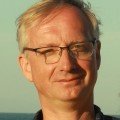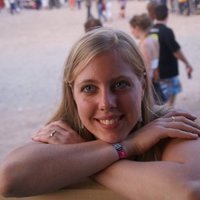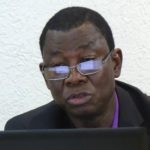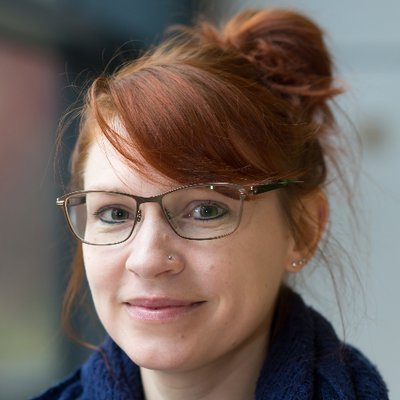Created in 1991 by a group of European and African social science researchers, the Association for the Anthropology of Social Change and Development (APAD) is an international association under French law, whose goal is to promote scientific exchanges on social change and development, in Africa and elsewhere. As the leading scholarly association on this topic, APAD brings together social anthropologists, sociologists, political scientists, geographers, and others. It promotes rigorous qualitative analysis of the practices and representations of the actors implicated in development policies and projects, and dialogue with practitioners of development. With about 400 members and sympathisers, it has created a space for researchers and practitioners – from the Global North and the Global South, Anglophone or Francophone – for sharing ideas and for publishing.
APAD publishes Anthropologie & développement, a bilingual, peer-reviewed journal, which replaces the APAD Bulletin. Anthropologie & développement hopes to foster access to publication for young researchers and researchers from countries in the Global South. It also aims to valorise dialogue between social science researchers and development practitioners. APAD also publishes books resulting from its conferences or submitted by its members, mostly by Karthala Editions. Every two years, APAD organises an international conference, alternately in Africa or in Europe. Bringing together about 100 people, these conferences offer a space for making connections and exchanging ideas on emerging themes. They allow for the valorisation of research through the APAD Journal and publications. From the end of 2023 onward, APAD offers an online scientific seminar for its members.
30 years of intellectual and amicable adventure
APAD was founded in March 1991 in Paris, on a few principles it continues to live by: an empirical approach to development, far from normative debates, with the aim of describing and analysing practices and representations, staying as true as possible to the actors involved; a desire to promote “development” as a legitimate object of research in anthropology and as an indicator of contemporary processes of social change in a globalised world; and an ambition for dialogue, both critical and constructive, with practitioners. Add to this a principle of North/South balance, and of promoting young researchers, and you have the ingredients for an adventure that extends far beyond the association, that has continued for 25 years through the renewal of members and of the board that have lead the association, and that has marked the social sciences of development, particularly for Francophones[1].
Pre-history (the 1980’s): an empirical approach to development, researcher/practitioner dialogues
“There is development where there are developers.” It was in 1982 that Jean-Pierre Chauveau formulated, in a collective article (Aubertin, Cabanes, Chauveau et al., 1982:302), what would become the basic premise of APAD. Far from the endless theoretical debates on the definition of the term, as well as from mechanistic theories on social change, it was a matter of rigorously observing the practices of actors in the interventions dubbed “development,” and their effects.
In the 1980s, social science researchers from ORSTOM (later IRD) engaged in a series of debates on development. Meanwhile, the encounter of social scientists, sociology consultants, and development practitioners interested in understanding social dynamics – largely prompted by Jean-Pierre Olivier de Sardan – sparked the implementation of training sessions for technical assistants of French cooperation, with participation of social scientists. This led to the collective work “Paysans, experts et chercheurs en Afrique noire” (Peasants, experts, and researchers in Black Africa) (Boiral, Lanteri and Olivier de Sardan, 1985), which marked an important step in the process of establishing a trans-professional network.
At about the same time, German researchers in association with Elwert Georg and Thomas Bierschenk developed a similar perspective from studies in Benin (Bierschenk, 1988; Elwert and Bierschenk, 1988) that considered development projects as “arenas “, where various “strategic groups” confront each other.
The foundational years (1991-1995): Anthropology of social change and development as a theoretical ambition
In 1990, Jean-Pierre Olivier de Sardan, who had arrived a few years earlier at EHESS-Marseilles, brought together some French and German friends and colleagues around the idea of creating a scientific association dedicated to social change and development. For them, it was imperative that anthropology address contemporary social change processes; development aid was a part of the everyday life of villages and urban neighbourhoods in Africa, and had to be analysed in the same way as other dynamics of change. Furthermore, fewer and fewer jobs existed in universities for young anthropologists, especially in Africa. Promoting development anthropology as a legitimate field of research was both a theoretical ambition contributing to the renewal of the discipline, and a career opportunity that could contribute to changing aid practices (Olivier de Sardan 1991). Creating a link with works written in English, particularly those of Norman Long (Wageningen University) on the notion of the interface (Long, 1989), Jean-Pierre Olivier de Sardan proposed a political socio-anthropology of social change and development, as a way to analyse the interaction between actors in local arenas at the interface between the “developers” and the “developed.”
APAD was officially founded in March 1991 in Paris, with an international Board made up of Europeans and Africans). J.P. Olivier de Sardan was the President, and J.P. Chauveau, the General Secretary. The Secretariat was initially hosted at the Laboratory of Agrarian Studies at ORSTROM-Montpellier until September 1992, when it moved to EHESS-Marseille. The first bulletin, which incorporated the interventions at the founding conference, was published in June 1991. The preparation of the first conference was launched. It would take place in October 1992 in Montpellier, on the theme of farmers’ organisations in Africa. The following conference, organised in Bamako in 1994, would focus on social science expertise. The first books co-edited by APAD were published: one on “peasant associations in Africa” edited by Jean-Pierre Jacob and Philippe Lavigne Delville, resulting from the 1992 symposium; a collection of articles by Olivier de Sardan, “Anthropology and Development“, became the work of reference in French and was subsequently published in English. A Europe / Africa network dynamic, conferences, journal, and books: APAD’s pillars were in place.
From development to governance of collective services: new themes, widening networks and Anglophone expansion (1996-2007)
From the interfaces and development projects, APAD’s reflections quickly expanded to new horizons: local brokers and administrative decentralisation, at the time still in the preparation stages or being implemented in different African countries. These would be the themes of the following conferences: in Stuttgart in 1996 on “Negotiated development. Brokers, knowledge, technologies” – which allowed the results of the research project on local development brokers to be reproduced and debated – in Louvain la Neuve in 1997, and in Cotonou in 1998, both on decentralisation. With the Stuttgart conference in 1996, the Europeanisation of APAD was reinforced, and English became a working language. While teaching at the University of Hohenheim, Bierschenk Thomas, who had been a visiting professor in Marseille a few years earlier, was elected President, Bako Nassirou Arifari became the Secretary General, and the Secretariat moved to Stuttgart. Up until then photocopied in A4, the APAD Bulletin was redesigned; starting from issue N° 12 (1996), it would take on a journal format and would be published in Germany by LIT. A collection of books in English, however fleeting, was also launched at LIT.
Under the presidency of Abdou Salam Fall (Cheikh Anta Diop University, Dakar) (1998-2002), the General Secretariat was held by Giorgio Blundo at EHESS-Marseille. The latter was elected president in 2002, and the General Secretariat was assumed by Jacky Bouju in Marseille, and then by Mirjam de Bruijn at the African Studies Centre in Leiden, the Netherlands in 2006. APAD had truly become bilingual, but Anglophone expansion concerned Europe more than Africa. The website was created. Sten Hagberg (University of Uppsala – Sweden) was elected president in 2007, during the Louvain conference. The Secretariat was now directed jointly in Leiden and Niamey (Niger) with Mohamed Abdoulaye (Lasdel) serving as General Secretary. In 2010, the daily management was assumed in Uppsala at manage Uppsala University (Sweden). In 2009, at the publication of issue No. 29-30, the Bulletin underwent a new layout with a photo on the cover. The regular publication resumed from that number. A peer-review system was set up during issue No. 30-31.
Throughout the years, APAD has explored new themes. Collective research projects have raised topics on corruption, patient /staff relations in health centres, etc. Rural/urban interactions, the governance of publics services, entrepreneurial dynamics, health and violence are just some of the themes treated in the Bulletin, as well as in books written by members of APAD.
A socio-anthropology of globalisation and internationalised public action (since 2007)
Focused for a long time on the local, APAD began to articulate more on the local and the global in the mid-2000s. Entitled “Development, Liberalism, and Modernity: the Trajectory of an Anthropology of Development,” the Louvain Conference (2007) was a milestone of both results and renewal, further anchoring the socio-anthropology of development in the debates on globalisation, as called for by Thomas Bierschenk (2009) at his inaugural conference.
During the past twenty years, the APAD network has therefore produced a unique body of experiential knowledge on development projects and on public and community services. From a “bottom-up” approach in questioning the relationship between public services and users, the research leans towards investigating daily administration and issues of the state. Politicisation and power issues have more explicitly become research topics.
The engagement of anthropology in development and social change (Ouagadougou 2010), field relations in the context of emergency and development (Montpellier 2013), the anthropology of aid agencies, and the specific conditions of public action in countries under aid regimes (Cotonou 2015) shape the contours of a socio-anthropology of public policies in Africa in a context of globalisation marked, among other things, by the permanent intervention of international institutions.
Since September 2013, the Secretariat has returned to Montpellier, under the presidency of Philippe Lavigne Delville (IRD), with Pascale Maizi-Moity (Supagro) serving as General Secretary. The Bulletin has been permanently transformed into a bilingual peer-reviewed journal entitled Anthropologie & développement. Initially self-published by APAD itself, the journal is published by the Presses Universitaires de Louvain (PUL) from 2019 on. The website has been revamped; an online payment system has been set up for membership, simplifying the collection of annual fees. The 2015 General Assembly ratified the geographical opening beyond Africa, which remains the heart of the network, and removed from the name of the association the mention “Euro-African”. Expressing the will – globally realized – not to be an association of researchers from the North working on Africa, and of a balance between European and African members, this term had become little understandable and could slow down the geographical enlargement of the members. The secretariat was transferred to the Laboratoire d’anthropologie prospective (LAAP) at the Université catholique de Louvain in 2022, with Benjamin Rubbers (Université de Lille) becoming secretary general.
Under the theme of public action, the 2015 Cotonou conference is promoting solid empirical analysis on how aid and development policies are produced and negotiated ahead of their implementation. Such new issues encourage a dialogue with the political sociology of public action that, in the context of industrialised countries, will eventually work on similar issues. The issue of social change is not forgotten : in 2018, the Roskilde conference focused on migration, and in 2021, the Lomé conference on circulation. The 2024 conference, to be held in Liège, will focus on work.
References
Aubertin C., Cabanes R., Chauveau J.-P., et al, 1982, “Où il est dit que le développement est un objet historique“, Revue Tiers Monde, vol 23 n° 90, pp. 297-305.
Bierschenk T., 1988, “Development Projects as Arenas of Negotiation for Strategic Groups. A Case Study from Benin”, Sociologia Ruralis, vol 28 n° 2-3, pp. 146-160.
Bierschenk T., 2008, Anthropology and Development. An historicizing and localizing approach, Maintz, Institut für Ethnologie und Afrikastudien, Gutenberg Universität.
Boiral P., Lanteri J.-F. and Olivier de Sardan J.-P. ed., 1985, Paysans, experts et chercheurs en Afrique noire. Sciences sociales et développement rural, Paris, Karthala/Ciface.
Elwert G. and Bierschenk T., 1988, “Development Aid as An Intervention in Dynamics Systems”, Sociologia Ruralis, vol 28 n° 2/3, pp. 99.
Lavigne Delville, P. et Roy, A., 2021, “APAD, thirty years of an intellectual adventure“, Anthropologie & développement, n° Hors série.
Lewis D. and Mosse D., 2005, The Aid Effect: Giving and Governing in International Development, Pluto.
Lewis D. and Mosse D., 2006, Development Brokers and Translators. The Ethnography of Aid and Agencies, Bloomfield, Kumarian Press.
Long N., 1989, Encounters at the Interface. A Perspective in Social Discontinuities in Rural Development, Wageningen Agricultural University.
Mosse D., 2005, Cultivating Development. An Ethnography of Aid Policy and Practice, London Pluto Press.
Olivier de Sardan J.-P., 1991, “L’anthropologie du changement social et du développement comme ambition théorique ?“, Bulletin de l’APAD, n° 1, pp. 7-11.
Olivier de Sardan J.-P., 2005, Anthropology and development: Understanding contemporary social change, London, Zed Books.
[1] The EIDOS network has a parallel dynamic in association with David Mosse and David Lewis. Cf. (Lewis and Mosse, 2005; Mosse, 2005; Lewis and Mosse, 2006)
APAD is directed by an international Board of about 15 members, elected for a four-year term during the General Assembly which takes place during the conferences. The Board designates an Executive Secretariat among its members, hosted by an academic institution on a rotational basis. The Board meets by web conference every two months.
The Executive Secretariat (President, Vice President, Secretary General, Deputy Secretary General, Treasurer, Deputy Treasurer) ensure the daily management of the association. For optimal effectiveness, it includes a core group of people who are closely-located geographically.
Until 2010, APAD benefited from in-kind support from the institutions hosting its secretariat. With the reduction in laboratory resources, this support has disappeared. The association thrives essentially due to the voluntary investment of its members. Membership fees, and allowances for publication included in conference budgets, allow the association to cover the costs of production and distribution of the Journal. Conferences have benefited from specific funding. For its activities, APAD has received occasional support from institutions such as the IRD.
To strengthen its activities, since 2022 APAD has implemented a strategy for diversifying its resources, along two lines: on the one hand, institutional membership fees (incorporated into the bylaws in 2018), and on the other, multi-year support agreements. These arrangements enable research and development institutions, in the North and South, to support APAD’s mission while facilitating their members’ membership of the association.
| Photo | Member | Responsabilies | Contact |
|---|---|---|---|
 |
Philippe Lavigne Delville | President | Courriel WebPage |
 |
Ludovic Kibora | Vice-president | Courriel |
 |
Pascale Moity Maizi | Secretary general | Courriel Web Page |
 |
Sylvie Ayimpam | Deputy-Secretary general | Courriel Web Page |
 |
Laurence Boutinot | Treasurer | Courriel Web Page |
 |
Marie Deridder | Deputy Treasurer | Courriel |
 |
Barbara Bentz | Courriel | |
 |
Elieth Eyebiyi | Courriel | |
 |
Sarah Fichtner | Courriel | |
 |
Marion Fresia | Courriel | |
 |
Eric Hahonou | Courriel | |
 |
Seydou Keita | Courriel | |
 |
Jacinthe Mazzocchetti | Courriel | |
 |
Anneke Newman | Courriel | |
 |
Fatoumata Ouattara | Revue de l’APAD | Courriel |
 |
Alexis Roy | Courriel | |
 |
Oumy Thiongane | Courriel |

